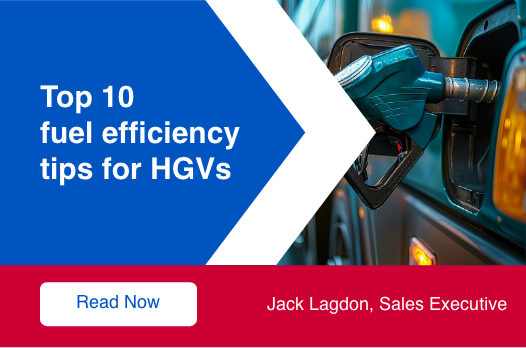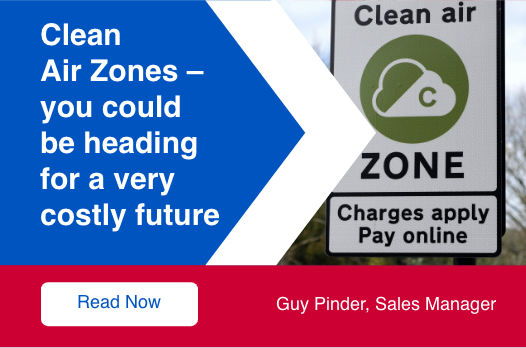UK Operator Licences – an essential guide
In the United Kingdom, operating HGV trucks for commercial purposes requires more than just a driving licence.
Businesses and individuals transporting goods must obtain an Operator Licence, also known as an O-licence.
Having an O-licence is a regulatory requirement and ensures that transport operators meet safety, environmental, and legal standards.
Responsibility for issuing O-licences rests with the country’s eight Traffic Commissioners, each of whom covers a particular geographical area. In Northern Ireland, issuing O-licences is the responsibility of The Department for Infrastructure.
Types of Operator Licences
There are three main types of O-licences in the UK, each covering different needs and operations:
- Standard National Licence – allows you to transport goods for hire or reward within the UK and to operate on their own account within the UK.
- Standard International Licence – permits you to transport goods both within the UK and internationally, covering hire or reward and own-account transport.
- Restricted Licence – suitable for businesses that transport their own goods. This licence does not allow the transport of goods for hire or reward.
Eligibility and requirements
To qualify for an Operator Licence, you must meet several conditions:
- Good repute. You must demonstrate that you have not been involved in serious legal infringements or offences, particularly in relation to transport operations.
- Financial standing. You must prove that you have sufficient financial resources to maintain your vehicles and operations. This is to ensure that vehicles are kept safe and roadworthy.
- Professional competence. For Standard National and International licences, you need to have a professionally competent Transport Manager who must hold a Certificate of Professional Competence (CPC).
- Stable establishment. You must have an operational base within the UK where you can maintain your vehicles and keep records.
- Vehicle Maintenance. You must have a rigorous maintenance regime in place, ensuring that all vehicles are regularly checked and repaired to keep them roadworthy.
Application process
Applying for an O-licence involves a number of steps:
- Gather all the necessary documents, including financial statements, details of operating centres, and maintenance arrangements. If you have more than one operating centre, you’ll need a licence for each of them if they’re in different Traffic Commissioner areas.
- Online application. Submit the application through the UK Government’s website here. The process includes a fee.
- Public notice. Publish a notice of the application in a newspaper local to your operational centre, to inform the public and allow for objections. Your application will be refused if it’s not advertised correctly.
- Review and decision. The relevant Traffic Commissioner will review your application, considering any objections or issues raised. They might request further information or hold a public inquiry before making a decision.
- Granting the licence. If your application is successful, the licence will be granted, and you can begin operations under the specified conditions.
Compliance and enforcement
Holding an O-licence comes with many ongoing responsibilities. You must ensure continuous compliance with all the relevant legal and safety standards, including:
- Record Keeping. Maintain detailed records of vehicle maintenance, drivers’ hours, and operational activities.
- Audits and Inspections. Be prepared for regular audits and roadside inspections by the Driver and Vehicle Standards Agency (DVSA).
- Reporting Changes. Inform the relevant Traffic Commissioner of significant changes to the business, such as new operating centres, changes in financial status, or adding vehicles.
- Annual Fee. Pay an annual fee to keep the licence active.
Non-compliance can lead to penalties, including fines, suspension, or revocation of the O-licence. Serious breaches can result in criminal prosecution.
Conclusion
An O-licence is essential for any business or individual involved in commercial operations using an HGV truck in the UK.
It ensures that operators adhere to stringent safety, environmental, and operational standards, and that they contribute to a safer and more efficient road transport system.
More detailed information on O-licences is available on the UK government website which provides extensive resources and guidance, including a useful video explaining the application process.
Stuart Gray – General Manager, Dawsondirect
Recent News
- Trends in the UK used truck market
- Get to Know… Guy Pinder
- Get to Know… Emma Denton
- Get to Know… Gareth Williams
- Choosing the right used truck for your business needs
- How important are truck drivers and good quality trucks to the UK economy?
- Driving and caring for an HGV in winter
- Top 10 fuel efficiency tips for HGVs
- Clean Air Zones – you could be heading for a very costly future
- UK Operator Licences – an essential guide
- Excellent customer service comes as standard with Dawsondirect
- Get to Know… Stuart Gray, our new General Manager
- Turbocharge your career in used truck and trailer sales!
- What to look for when buying a used truck
- Dawsondirect – your first choice for quality used trucks and trailers
- ‘Interesting’ time in the used truck and trailer market
- Used truck and trailer live auctions are back!
- Warehouse on Wheels satisfies strong demand at Summer events
- Get to Know… James Hunter, Head of Remarketing
- Perfect storm poses new challenges for stallwart in used truck sales
- Multi-million-pound investments in fleet renewal and refresh
- New Dawsongroup South West supersite opens for business
- Don’t get caught out by London’s Direct Vision Standard!




